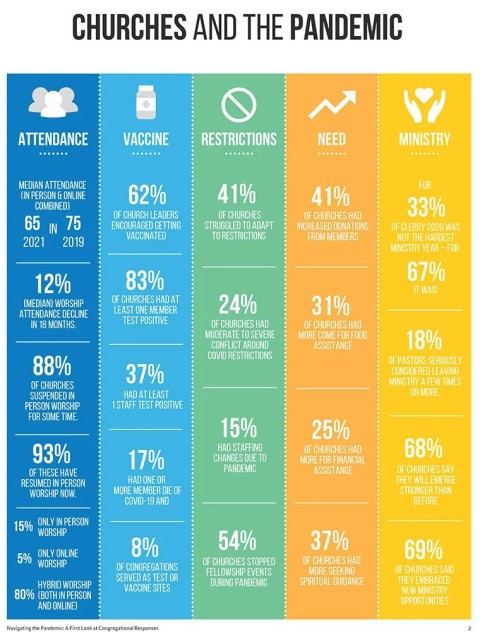New study examines how COVID has changed churches

A new study from the Hartford Institute for Religion Research provides a look at the state of churches in the wake of the ongoing pandemic.
The study surveyed 2,074 churches from 38 denominations this summer and, according to Scott Thumma, the study’s principal investigator, showed that “the pandemic had a profound impact across the religious spectrum, and that some churches are faring better than others.”
Thumma, in an interview, said he was surprised that a third of the clergy did not say the last year was their most difficult in ministry.




